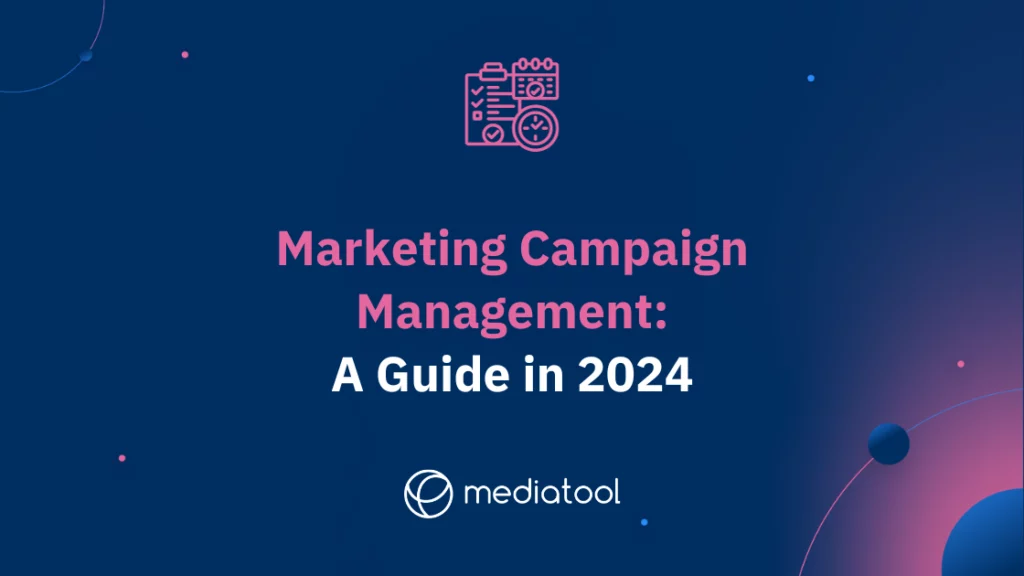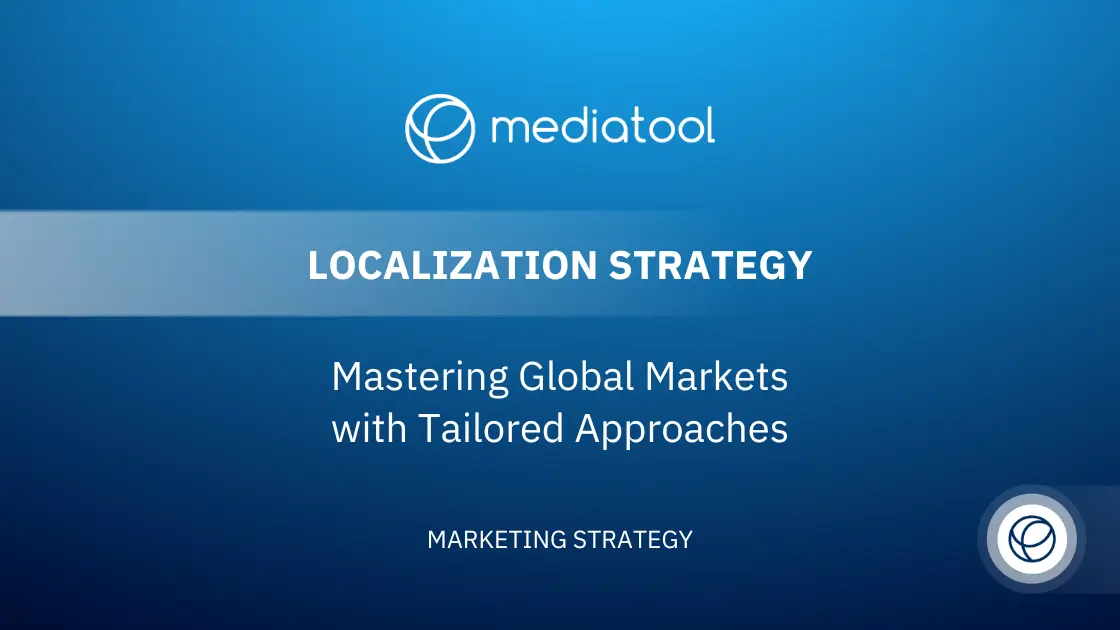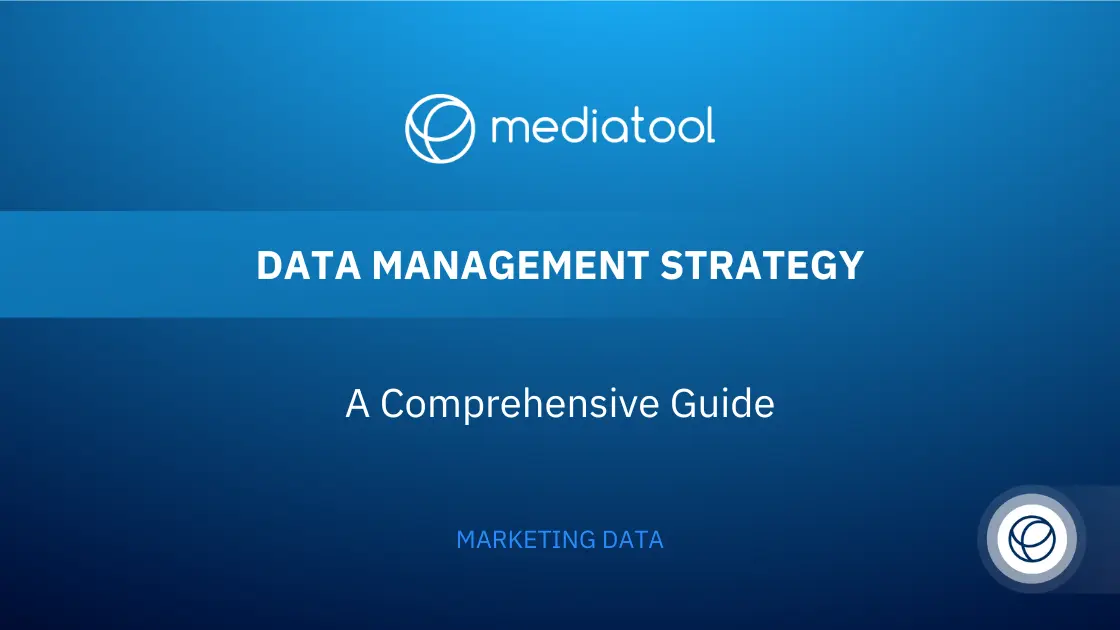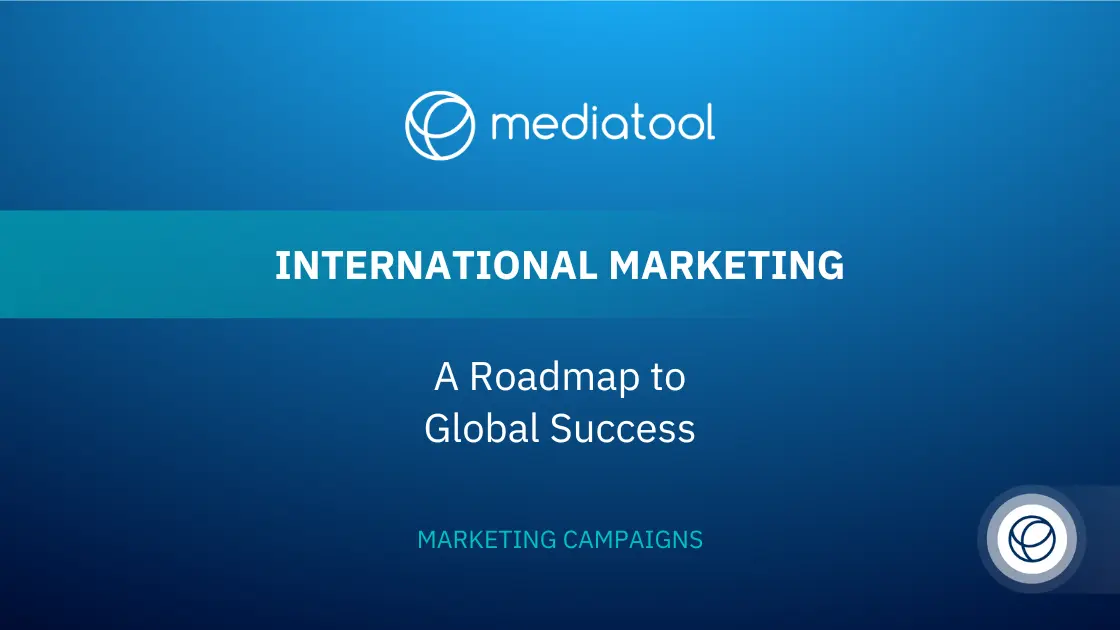Our tips on the strategy, software, tools, and techniques you need to streamline marketing campaign management
Managing marketing campaigns is complex, especially when juggling online and offline activities that straddle multiple global regions while trying to optimize marketing performance and improve ROI.
But as campaign management becomes more complex, campaign management software is matching the pace of change. With the right tools (and a customer-focused strategy), brands and agencies can streamline marketing campaign management, improve productivity, and optimize delivery for greater returns.
Read on for our top tips on streamlining marketing campaign management. Plus, we’ll share the top myths surrounding cross-channel campaigns in 2024.
What is Marketing Campaign Management?
Marketing campaign management encompasses the meticulous process of organizing, executing, assessing, and refining various marketing initiatives. This concept is broad and multifaceted. It encompasses everything from marketing teams coordinating integrated marketing campaigns across multiple European locations to the execution of diverse campaigns for assorted product lines.
This includes leveraging tools like social media marketing, search engine marketing, and traditional channels like TV and billboard advertising.
At its core, marketing campaign management involves using specialized tools and software to streamline these processes. Marketing campaign managers play a pivotal role, utilizing campaign management software and other asset management tools to track campaign performance, manage budgets, and align campaign objectives with overall business goals.
This management process also extends to creative agencies handling numerous client projects, ranging from straightforward, continuous campaigns to intricate, combined online and offline strategies. Moreover, it’s applicable to small-scale ventures, such as a local business initiating its first email marketing campaign, to large-scale efforts aimed at increasing brand awareness or customer loyalty.
Effective campaign management hinges on a deep understanding of the target audience, meticulous campaign planning, and the ability to create engaging content across various channels. It’s about more than just executing marketing activities; it’s about crafting personalized marketing messages, segmenting audiences, and using data to guide future campaigns.
With the right marketing campaign management strategy, marketing teams can effectively reach potential customers, engage existing customers, and measure key metrics like website traffic and audience engagement.
What is Marketing Campaign Management Software?
Complex campaigns involve a lot of moving parts. Marketing campaign management tools simplify the process by automating manual tasks and streamlining internal processes.
Again, that’s a broad definition. There are a lot of campaign management software solutions out there – almost 10,000 at last count – each with a different set of features.
The Essential Marketing Campaign Management Software
With so many potential platforms, knowing which suits your brand is challenging. There’s no right choice for everyone. But there is a “best marketing campaign management tool” for your requirements, and we’ll help you find it.
Your martech shopping list:
Must have:
- Time-saving automations
- Holistic overview of marketing activity
- Third-party data integrations
- Real-time target tracking
- Flexible, user-friendly dashboard
- Calendar tools
- Exportable reports
- Strong data security
- Customizable user permissions
- Scalability to support growth
Nice to have:
- Media planning templates
- Automated reporting
- AI or machine learning
- Timesheet or productivity tracking
- Taxonomy tools
- Predictive analytics
- External collaboration tools
Before you rush out to procure a marketing campaign management tool, consider the bigger picture. Although we refer to MarTech as “solutions,” software is more of an “investment.”
The marketing campaign management software you choose should support long-term growth, not become a band-aid solution for poor internal processes. So, before you make another move, read these tips on streamlining your marketing campaign management process.
Step 1: Name and Structure Your Data for Reliable Results
One of the critical parts of campaign organization is matching taxonomy and naming conventions between internal systems (software) and external activity (campaign creative).
Taxonomy is the Classification of Data into Standardized Categories
Taxonomy refers to the systematic classification of data into standardized categories. By establishing a cohesive taxonomy, you ensure that marketing data from various campaigns—ranging from email marketing to social media marketing—is accurately categorized across channels, systems, and processes.
This alignment guarantees that internal and external taxonomies communicate effectively, leading to complete and reliable marketing data.
Implementing clear naming conventions for all marketing activities, both offline and online, is essential. It allows every team member and system to track and analyze data accurately.
Standardizing data taxonomies and naming conventions from the beginning significantly aids in attributing results to specific marketing efforts, thereby enhancing ROI.
The structure of your data taxonomy will vary based on your organization’s needs. Naming conventions can become complex, especially as more contributors join the media planning process. For global brands and agencies, it’s crucial to have a centralized content management system for naming conventions, supported by collaborative tools for team collaboration.
Mediatool offers the flexibility to set up custom taxonomy and naming conventions tailored to your specific requirements, linking them to actual campaign results for a detailed yet comprehensive view of campaign activities. You can create custom tags and UTM codes for precise data classification, essential for effective campaign management.
Mediatool’s collaborative features ensure that brands and agencies can work seamlessly together across different regions, maintaining consistency in taxonomy and campaign management processes, thus facilitating successful campaigns and meeting business goals.
Step 2: Execute Your Plan With a Marketing Campaign Management Tool that Gives a Birds-eye View
Efficiently executing complex marketing campaigns requires a comprehensive overview of all components, necessitating a reliable marketing campaign management tool. This tool should offer a bird’s-eye view of your campaign investments and activities, enabling you to make informed decisions for optimizing your campaigns and achieving your objectives.
A customizable marketing campaign management dashboard can assist you in several ways:
- Consolidating all marketing data into a single, trustworthy source.
- Reducing the time spent navigating between different platforms.
- Simplifying media planning, tracking, and analytical processes.
- Confidently monitoring campaign performance.
- Automating report generation.
- Identifying areas for optimization.
Despite the availability of numerous marketing tools and dashboards, many Marketing Managers still rely on spreadsheets or disparate systems.
However, integrating various campaign aspects like PPC campaign management, social media results, web analytics, and offline media investments is possible with tools like Mediatool.
Mediatool allows for the integration of various marketing activities, from social media campaigns to email marketing, and aligns them with your overall marketing strategy.
It supports the entire lifecycle of marketing campaigns, from initial planning and content creation to tracking key metrics and reporting success.
This tool is designed to facilitate team collaboration, ensuring that all members of the marketing team are aligned and working towards common campaign objectives and business goals.
Mediatool is an all-in-one marketing campaign management tool that integrates digital marketing platforms like Google Analytics, Facebook, and TikTok with offline media planning for a comprehensive view of all activity.
Step 3: Use Real-time Data to Track Results and Compare Them Against Targets
As your marketing campaign takes off, immediate tracking becomes crucial. For precise monitoring of key performance indicators (KPIs), access to real-time data from all marketing channels is essential.
Relying on delayed data or manual compilation of marketing metrics can lead to missed opportunities for optimizing your campaign.
Following the initial steps in setting up your marketing campaign management tool, you should have continuous access to accurate data. This allows you to compare actual results with your KPIs effectively.
The tool should enable you to filter marketing data, export custom reports, and address complex KPI-related queries.
To enhance your campaign management efficiency, opt for a cross-channel campaign management tool that offers capabilities to:
- Set specific targets for each marketing channel or creative piece.
- Automatically juxtapose results data with pre-set targets.
- Align campaign results with overarching business goals.
Utilizing a unified platform for planning, launching, tracking, optimizing, and reporting on campaigns represents an ideal scenario for streamlining marketing campaign management processes.
This approach ensures that your marketing team collaborates effectively, content is created with target audience and marketing strategy in mind, and marketing efforts across various campaigns—be it email marketing, a social media marketing campaign, or content marketing—are cohesively managed.
This step is about leveraging marketing campaign management software to its full potential, ensuring that every aspect of your campaign, from audience segmentation to content creation, is aligned with your marketing goals, ultimately contributing to successful campaigns and business growth.
Step 4: Use Insights to Improve Performance and Smash Your Targets
After assessing how your marketing activities measure up against your targets, it’s time to use these insights to refine and boost your campaigns.
For a marketing campaign manager, maximizing return on investment (ROI) is a crucial objective, combined with managing the overall performance of marketing campaigns.
This dual focus demands the right campaign management software that facilitates cross-channel campaign planning and optimization.
The simplicity and user-friendliness of the right campaign management tool are invaluable for brands and agencies striving to provide superior customer experiences.
This software should empower you to make swift and informed decisions about aspects like:
- Allocating increased investment in productive areas.
- Reducing spending where necessary.
- Identifying high-performing marketing channels.
- Understanding how different audience segments are reacting.
- Implementing A/B testing for innovative ideas.
By promptly responding to the data reflecting your campaign’s performance, you can surpass your KPIs while effectively managing your marketing budget.
With accurate and reliable data at your disposal, you can make confident decisions, ensuring that your marketing strategy aligns with your business goals.
This step involves utilizing marketing campaign management software to its fullest, enabling your marketing team to track key metrics, create content tailored to targeted audiences, and coordinate various campaigns, from social media marketing to email marketing campaigns.
By doing so, you can ensure that your marketing efforts are not only successful but also contribute to long-term brand development and customer loyalty.
Five Marketing Campaign Management Myths to Leave Behind in 2023
When HubSpot surveyed 1,200 marketers earlier this year, 80% said marketing had changed more since 2019 than in the last 50 years.
Now, it’s hard to take a stat like that too seriously, as most of today’s marketers wouldn’t have been working in 1972. But the sentiment remains the same: digital marketing evolves fast.
McKinsey’s research into US customer behavior during the COVID-19 pandemic provides a better snapshot of how things are changing. As we farewell 2023, let’s leave these campaign management myths in the past, along with the short-lived resurgence of neon…everything.
Marketing Campaign Management Myth #1: Reports are Made at the End
Reporting is often seen as the last thing you do after a campaign. This makes more sense with traditional advertising such as OOH or TV. Once those channels are live, it’s hard to make adjustments.
However, with most digital marketing campaigns, changes can be made mid-campaign. Targeting tweaks, adjusting investment levels, A/B testing creative – but how do you know what to change?
Mid-campaign reporting provides the data you need to make agile adjustments and hit KPIs faster.
By presenting results internally – or updating clients on mid-campaign results – marketers have a stronger case to justify investments and request more budget.
Marketing campaign management software should ease the reporting burden. You can generate reports in seconds using campaign management software like Mediatool. That means you can spot opportunities to improve campaigns, demonstrate marketing’s value, start planning early and keep the client informed.
Marketing Campaign Management Myth #2: A Marketing Strategy is a One-and-done Task
Marketing strategies need time to generate results. Changing the strategy every couple of weeks would be a waste of energy. However, strategy is still being set and remembered.
We’re not saying you should change your messaging and shake up the campaign from its foundations every week. But if results fall short of KPIs, you should be proactive by making data-driven adjustments.
- A/B test new ideas
- Review marketing data regularly
- Turn insight into action with agile marketing techniques
Every insight should contribute to the current strategy and the next campaign. There’s no set time frame for making adjustments. Remember that audiences respond to consistency, continuity, cohesiveness, and clarity. Make minor multivariate adjustments and let them run for a few days to gather data.
Marketing Campaign Management Myth #3: The More Marketing Campaign Management Tools, the Better
Tracking performance data from numerous channels and platforms at once can get complicated. Many companies have an oversaturated Martech stack that does more harm than good when trying to automate the process and reduce the team’s workload.
You don’t need a PPC management tool, social media analytics platform, media planning platform, project management tool, or reporting software. You need Mediatool.
Mediatool integrates all your digital marketing channels to centralize data. By merging all your top-level targets and real-time results, it’s easier to get a comprehensive view of campaign performance and prove the value of marketing efforts.
Marketing Campaign Management Myth #4: Conversions Are All That Matter
While conversions and sales are important, you would be doing yourself a disservice to focus on that one metric. Measuring the effectiveness of your marketing campaigns isn’t always easy, especially if your conversion rate is lower than expected.
There are two things you need to think about here:
1. What Other Results are Important?
For example, you launch a small social media campaign for a new product. Despite having a loyal follower base, conversions are low.
Consider other metrics that lead to conversions in due course. What is the CTR of your ads? What is the engagement rate of influencer partnerships?
Linking measurement data to campaign KPIs (and eventually high-level business goals) is an effective way to filter out the noise of cross-channel campaigns and focus on the metrics that matter.
2. What’s Going on in the World? What Are the Latest Consumer Trends?
As well as drilling down on data, marketers need to step back and factor in outside influences, such as consumer trends and global events, that could grab the audience’s attention.
Sometimes, things happen that you can’t control. Access to cross-channel marketing results in real-time enables you to react faster, optimizing media investments, so you don’t throw good money after bad. That’s where Mediatool adds value.
Marketing Campaign Management Myth #5: If a Campaign Performed Poorly, it Was a Waste of Time
Even the most meticulously planned and executed marketing campaigns can sometimes fall short of expectations. You’ve exerted every effort in strategizing a cross-channel marketing campaign, meticulously tracking results, iterating, optimizing, and even then, it might not achieve the desired outcomes.
However, considering such campaigns as a waste of time is a misconception.
In reality, the campaigns that don’t perform as anticipated are often the most informative. The purpose of collecting data, measuring results, and generating reports is to enhance future marketing efforts.
Learning from the setbacks is crucial for refining your marketing campaign management strategy. Allocating time to analyze the campaign data is vital to pinpoint areas for improvement in future campaigns.
Mediatool facilitates this process, allowing you to revisit historical data and delve into detailed analytics.
This process helps in uncovering overlooked opportunities and refining approaches for targeting potential customers, creating engaging content, and developing personalized messaging for various audience segments.
This learning phase is integral to the entire lifecycle of a marketing campaign, from initial campaign planning and content creation to measuring website traffic and assessing the effectiveness of different marketing channels, including social media platforms and email marketing campaigns.
By embracing this approach, marketing campaign managers can refine their strategies, better align with the marketing mix, and ultimately create more successful future campaigns that resonate with their targeted audience and contribute to brand development.
Get the Benefits of an End-to-end Marketing Campaign Management Software
Let your marketing tool do the heavy lifting so you can focus on the important work: coming up with killer creative ideas, optimizing your channel plan and content mix, allocating spending based on results, and strategizing the next campaign.
With Mediatool, you won’t have to second-guess your data or spend hours building and exporting reports for the C-suite.
Mediatool gives you a flexible overview of your marketing activities. You can zoom out to see how results are tracking against targets or zoom in to understand your audience. Book a chat with our team to see how the right marketing campaign management software can save time and optimize campaigns end-to-end.




